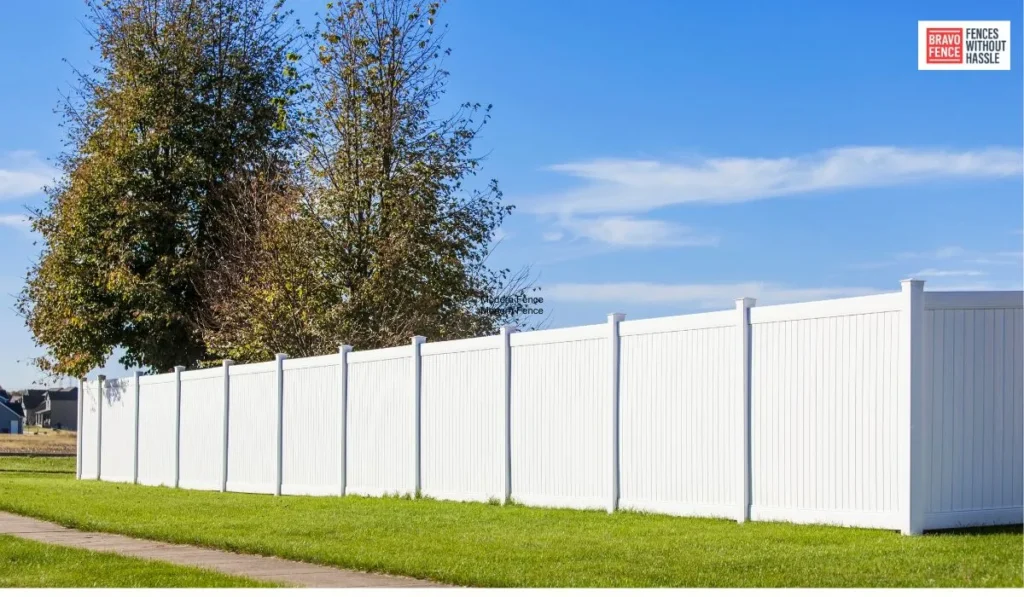Summer is finally rolling around, and for some lucky homeowners, that means months ahead of fun by the pool. But did you know that several states have pool fencing laws that require pool owners to put up a protective barrier or fence around their pool? These regulations were enacted to help reduce the number of child drowning fatalities each year, and are especially common in states with temperate weather and a high number of residential pools.
If you have a pool in your yard and don’t have a fence or are looking to replace your current fence, let’s “dive in” to explore your options!
Is it law to have a fence around your pool?
While not every state has specific laws regarding pool fencing, having a secure fence for your pool is still considered a matter of public health and safety. According to the Center for Disease Control (CDC), fences should not be more than 2 inches from the ground and any holes or gaps in the fencing should not exceed 4 inches in diameter. The pool gate should swing out and away from the swimming area, and the latch should be on the inside of the swimming area. The CDC guidelines add that if a pool is residential and its house doors provide pool access, they should have self-locking latches and be connected to an alarm, as well.
The Law in Georgia
Like many other states, Georgia has its own swimming pool fence laws in place to protect children from drowning. It is important for pool owners to check with their local government, as some Georgia municipalities may enforce more stringent laws than others. Georgia state law does require swimming pools to be completely fenced in. Homeowners may use their house as one side of the fence, but if they do, they must install an alarm on the door leading to the pool from the inside of the home. Any other gates or pool entryways must be mounted so that they open out, or away from the pool. Gates are not allowed to push open toward the pool from the outside of the fence.
Additionally, gates in swimming pool fences are subject to regulations. In Georgia, they must be self-closing and latching, and latches must be installed at the proper place. For a pool fence that is more than 4 feet tall, gate latches must be mounted no less than 4 feet above the ground. There are also rules regulating how tall the pool fence should be, with 4 feet being the minimum height. If the fence is no taller than the 4-foot minimum height, gate latches must be installed within 6 inches from the top of the fence. These rules are in place specifically to prevent children from reaching through the fence to open a gate, therefore there should be no fence openings within 18 inches of the latch release.
Are you liable if someone drowns in your pool?
Following pool fence laws is important not only to protect children but also to protect the home and pool owner from liability. When someone dies or is seriously injured in a drowning accident at a private pool, their loved ones may be able to file a negligence lawsuit against the owner. Simply put, if an accident happens at your swimming pool, chances are that you can be held responsible for it. This is especially likely in the circumstance that the pool was not fenced off or covered, particularly with respect to local regulations. Therefore, leaving your pool unfenced or fenced with a deteriorating fence is a huge safety and financial risk.
How much does it cost to put a fence around a pool?
Now that you have determined that a pool fence is an important investment, it’s time to consider what it will take to build one. Price varies greatly depending on the size of the fence and the materials. For example, if you are using one or more walls attached to your home, you may only need a small amount of fencing. If you are covering a large area, you may need significantly more materials.
Additionally, you may be surprised to learn how many options there are for fencing materials. Since pool fencing is so important, you will want to ensure that you hire a professional to do the installation. This will guarantee that your fence meets regulations and also is very aesthetically pleasing. Remember, adding a large fence to your yard will change the look of your landscaping, so you want this project to enhance your home’s beauty, not detract from it.
The most common pool fence material is aluminum or steel/wrought iron since these materials can be powder coated in just about any color to match your home. You can even “mix and match” fencing materials to get the aesthetic that best fits your overall home and landscaping design. Our experienced team of professionals can help you design the best fence for your home.
What is the best pool fence?
If you have already started researching options for pool fences, you have probably noticed that there are tons of options on the market. Many companies will specifically advertise their pool safety systems, though these can be cost-prohibitive and less aesthetically pleasing. Many of the pool fencing options on the market advertise as being temporary or easy to install on your own. The risk with such options is that they may be less sturdy and give you a false sense of security.
That is why the best option for a pool fence is a professionally installed, permanent, and attractive fence. The fence can be made of just about any material – aluminum, steel/wrought iron, wood, or vinyl (high-quality PVC). The customization of a permanent fence structure means you can rest assured that your pool is incredibly safe and it will look beautiful and not detract from your yard’s overall appeal.
What’s the cheapest fence to install?
You are probably familiar with the old adage, “you get what you pay for.” It is no different when it comes to pool fencing. Some low-end, temporary fencing may be fairly inexpensive, but you will likely need to replace these materials often to ensure they meet safety standards. That kind of annual expense can add up quickly. Likewise, Do-It-Yourself attempts at pool fencing may also become costly if you damage your pool decking in the process. Therefore having professionals install a permanent fence is your best choice for value in the long run. Different fences have different price points, aesthetics, and ongoing maintenance needs. Vinyl fencing is typically a great choice for any kind of fence because it is virtually maintenance-free. Glass fencing is typically the most expensive option, and can be as much as three or more times as expensive as comparable vinyl, wood, or metal fences.
The bottom line on pool fencing
As a homeowner, the responsible choice, whether it is the law in your area or not, is to build a secure fence around your pool. That means if you don’t currently have a pool fence, it’s time to invest in one, or if you have one that no longer meets regulations, it may be time to upgrade. Luckily, there are lots of beautiful, safe options for fencing that can actually enhance your yard’s landscaping and visual appeal and even increase your home’s value. If you are in the market for a new fence for your pool, Bravo Fence Company can help get you started.





